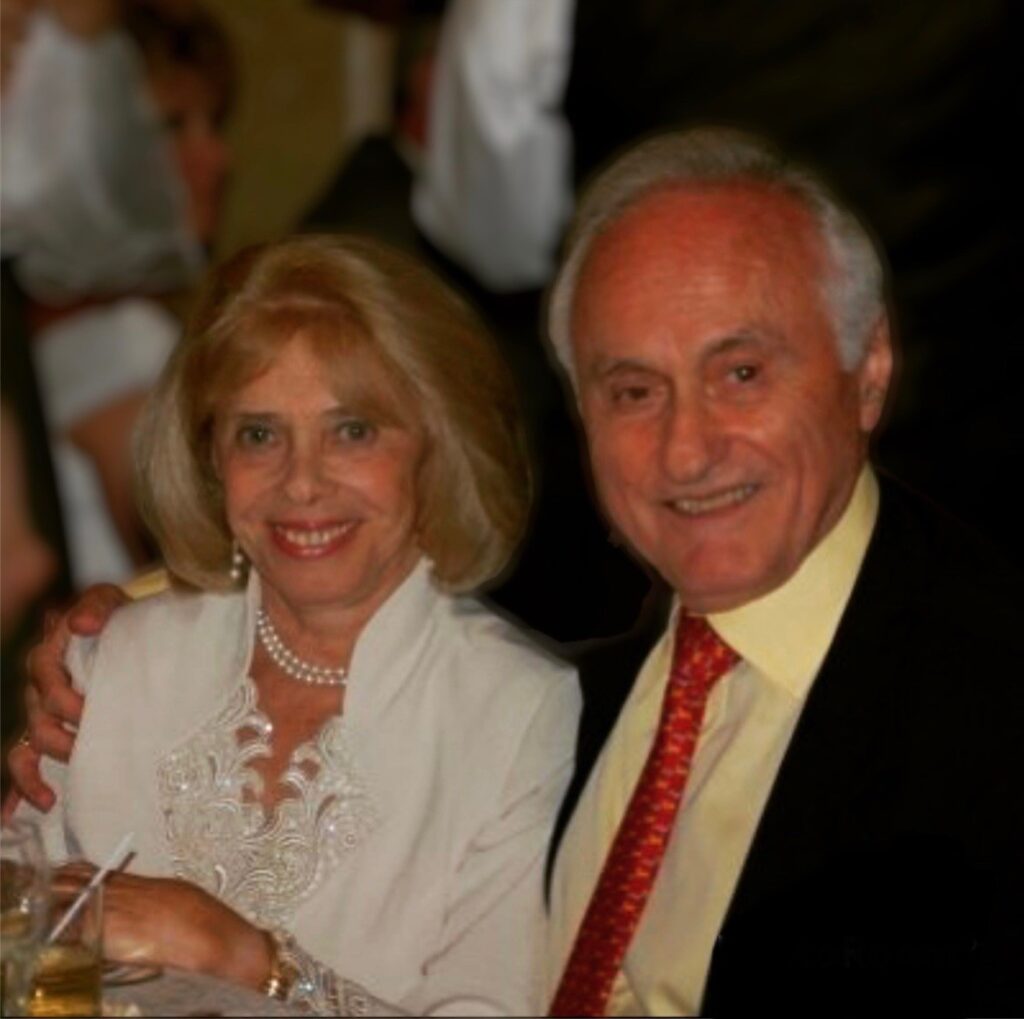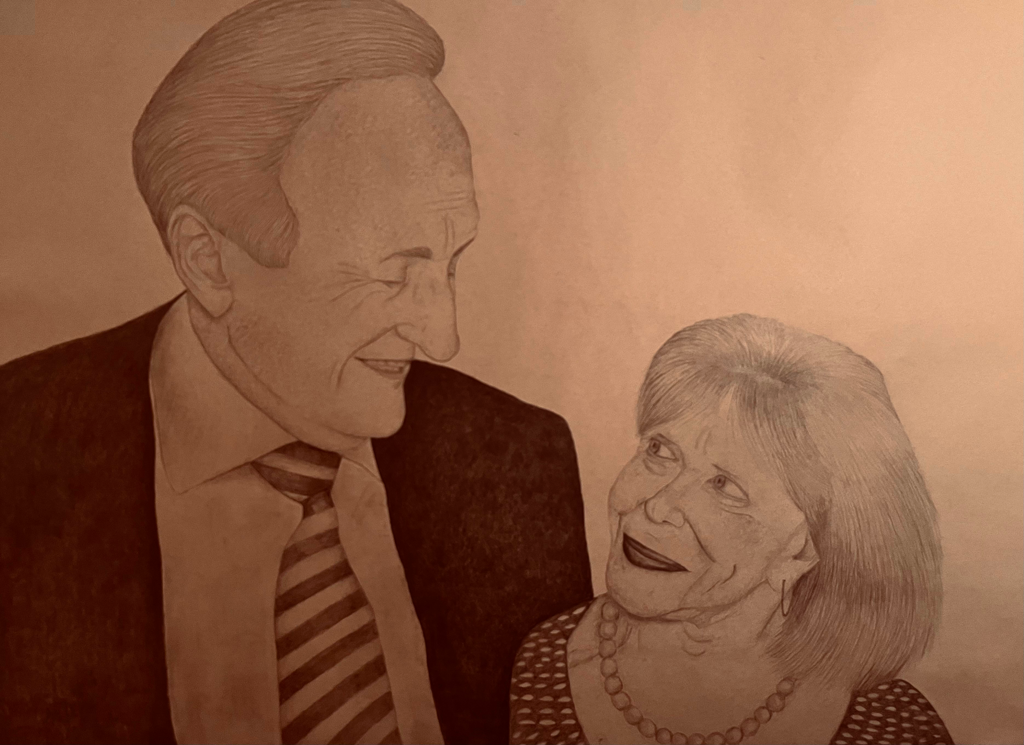
Eva and Les Sanders were both born in Budapest, Hungary in the early 1930s. Growing up, Eva loved to play cards with her father, and as a teen she was very involved in the Zionist youth movement. She met Les in grade school where they had mutual friends, but did not start dating until they were in university and both studying engineering. One day they left a water-polo match together, and the rest is history. They are married 67 years and counting.
Much of their childhood was filled with antisemitic events. Violent pogroms would beat Jews walking along the streets, and Jewish stores, businesses and synagogues were destroyed. Les’ father was subject to multiple incarcerations simply for the crime of being a Jew who owned his own business. He disappeared in the night to prison several times before WWII (as well as after under Communist rule), leaving young Les, his mother and brother frightened and alone.
In 1941, when Les was 9, and Eva was 7, both their fathers, and Les’ older brother, were taken to work in slave labor camps known for working men to death. By 1944, at ages 12 and 10, Hungarian law required young Jews, including Les and Eva, to wear a Yellow Star so that they could be tracked and easily targeted for persecution. Their families were required to move into overcrowded quarters. Eva’s family was forced to live in a building designated with a large Jewish Star for Jewish-only housing. Similarly, Les’ family was obligated to live in a Jewish-only building at first, and then later in the ghetto (buildings meant for 10,000 now held 60,000).
While her father was in the forced slave labor camps, Eva remembers the terror of the daily “selections” in the courtyard of the designated Jewish building. These selections conducted by the Hungarian Nazis were to separate the masses that would be marched to the Danube where they would be shot dead into the river or taken to perish in Auschwitz. While these happened daily, Eva’s childhood memory highlights one occasion when her mother’s quick thinking saved them both. Her mother realized, perhaps by intuition, or perhaps by noticing the elderly and weak among them, that their line would be those selected for the day’s mass murder. She took the risk, grabbed Eva, and deftly hastened them to the other line, saving both their lives. Among all the trauma Eva endured, this moment of her mother’s keen courage stands out among the many times her mother risked everything to save her young daughter from the atrocities that pursued them.
For a period Eva was alone as a child in a protected building run by the Red Cross for children, until her mother convinced someone on a cargo bike to retrieve her so they could reunite. At some point her father managed to escape the slave labor camp (as eventually did Les’ father and brother as well), and he joined them in one of these protected buildings. They were among the very lucky few who escaped deportation to concentration camps, or being shot into the Danube, onsite, or otherwise slaughtered as so many of their family, friends and neighbors had been. Eva lost many extended family members to the genocide of the Holocaust.
Les’ mother also acted fearlessly when deportations began in their Jewish building. She shielded her son as she found hiding place after hiding place for them. In his memoir Les recalls:
“…many Jews fled from the designated Jewish buildings to escape deportation, my mom and I among them. But where shall we go? According to Hungarian law each person had to register with the police where they lived, even overnight stays were supposed to be registered with the nearest police station. Food ration cards were issued to the person’s permanent residence, without ration cards food stores or restaurants wouldn’t serve you. Non-Jews were severely punished for sheltering Jews. Even if some decent person let us stay in their homes one or two nights, we had to move on to somewhere else, otherwise we risked arrest and jeopardized our benefactors. As a result we were hiding in numerous locations… There is no question in my mind that the Shoah could not have happened if the Jews had at that time a state of their own—Israel. Please think about that, our children, because the story is not over and Jews do not lack enemies even in our time. May you and your children live in a better world (which I’m afraid may not come soon), but remember your parents and grandparents history to fortify yourselves for a better life.” Les, like Eva, lost many friends, neighbors and most of his family to the Holocaust. His father had been one of 16 siblings. The majority of those 16, and their families, perished in the Holocaust. Les and Eva immigrated to the US in 1957 after a harrowing escape from Communism during the Hungarian Revolution in 1956. Both Eva and Les are mechanical engineers, and founded their own successful engineering and architecture firm Ener-Sol Associates. They raised a son and daughter in a traditional Jewish and Zionist home in Jamaica Estates, NY, and are proud grandparents to 5 grandchildren and 1 step grandchild. Les has been filmed in 2 Holocaust documentaries, including Names Not Numbers, and both he, Eva and their children continue to tell the stories of their family’s survival.


